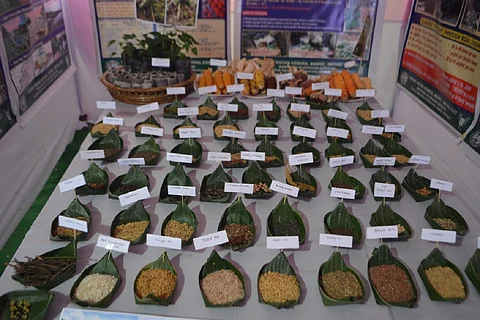

Usha Soolapani, a Kerala-based environmentalist and farmer, calls the festival a platform for exchange of knowledge. “With the constant efforts of seed conservators, scores of seeds that would have gone extinct otherwise have been recognized and also preserved by the governments. By preserving the traditional seeds, sustainable income of the farmers is ensured, as hybrid seeds demand rigorous use of fertilisers and water. The hybrid seeds are costly also,” she told TNM. Usha is part of a non-profit organisation called Thanal, based out of Thiruvananthapuram.
The festival gained attention in the early 2000s, when there was a controversy surrounding genetically modified (GM) cotton crops. “Later, there were even farmers who died by suicide after switching to modified seeds. Some people even raised the question of why farmers are still using the GM seeds if they weren’t successful. The answer is no traditional seeds are available now. There were over one lakh varieties of paddy across the country, of which a few are left now. There are only 10,000 to 20,000 varieties even preserved by the government. In Kerala alone, there were 300 varieties of paddy, of which less than five are available now, like the Jyothi or Uma varieties,” Usha added.
In his farm, Krishnaprasad grows 18 varieties of bananas and 60 varieties of tomatoes. He is part of the Organic Farmers Association Karnataka, and has been organizing a local seed festival for twenty years. Both he and Usha say that people should develop the culture of buying millets, vegetables and paddy grown using traditional seeds. “This would help in improving immunity and to stay healthier,” said Krishnaprasad, adding that traditional seed conservation is crucial in this aspect as well.
“These seeds are climate resistant too, whereas the hybrid varieties don’t sustain climate change, the impact of which has been visible on farming over the last ten years,” Usha said.